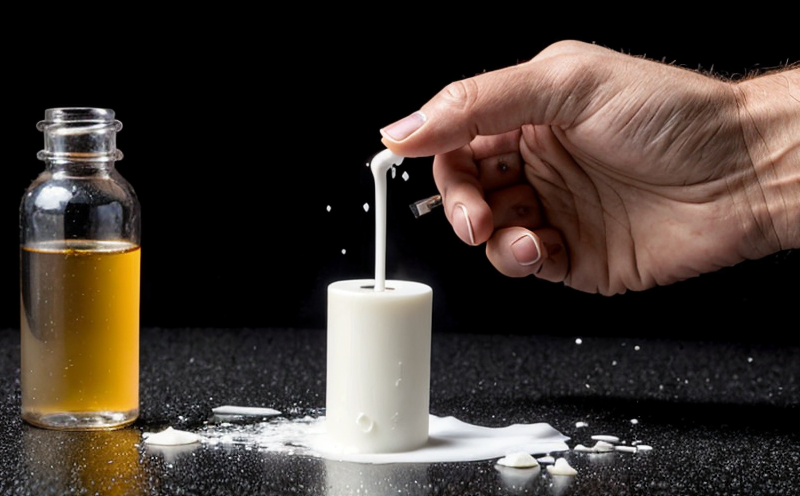USP Dissolution with Glass Vessel Verification Testing
The United States Pharmacopeia (USP) is a compendium of standards used to help ensure the quality, safety, and efficacy of medicines and other healthcare products intended for human use. Dissolution testing, as specified in USP General Chapter 716, is a critical procedure used to evaluate the extent of drug dissolution from solid dosage forms into an aqueous medium. This method assesses bioavailability by measuring how quickly and completely a drug can be dissolved at various time points.
The testing involves subjecting pharmaceutical tablets or capsules to simulated physiological conditions, which mimic the environment within the human gastrointestinal tract. Dissolution testing is essential for ensuring that a medication will release its active ingredients effectively when taken orally. It helps in validating the formulation and manufacturing processes, ensuring product consistency across batches.
One of the key aspects of this service is the use of glass vessels during the dissolution process. The choice of vessel material can significantly impact the results of the test due to potential interactions between the drug substance and the container’s surface. To ensure accurate and reliable data, it's crucial to verify that the glass used in the dissolution apparatus complies with specific standards.
Glass vessels must undergo rigorous verification testing to confirm their suitability for use in dissolution experiments. This involves checking factors such as chemical compatibility, resistance to leaching of contaminants into the test solution, and adherence to relevant international standards like ISO 6192 or USP 716. Verification helps mitigate risks associated with unintended degradation products affecting the integrity of the drug release profile.
Our advanced laboratories employ state-of-the-art equipment capable of performing both dissolution testing and glass vessel verification simultaneously. By integrating these two processes, we provide comprehensive support for pharmaceutical manufacturers aiming to meet stringent regulatory requirements while maintaining product quality.
Dissolution Testing Process
The dissolution process typically begins by selecting appropriate solvents based on the drug's properties. For most oral drugs, phosphate buffer pH 6.8 is used to simulate the conditions found in the small intestine. The test samples are then placed into a rotating basket or paddle system within the dissolution apparatus.
During rotation, each sample comes into contact with the solvent, allowing for efficient dissolution of the drug substance. Simultaneously, we monitor the concentration of the dissolved drug using UV-Vis spectrophotometry or other analytical techniques to determine compliance with predefined specifications.
Eurolab Advantages
- Accurate and Reliable Results: Our laboratories adhere strictly to USP guidelines, ensuring consistent accuracy in all dissolution tests. This consistency is vital for maintaining product quality throughout production runs.
- Comprehensive Verification Services: In addition to performing the dissolution test itself, we also offer detailed verification of glass vessels used during testing. This dual approach enhances confidence in the final results by eliminating variables introduced through incorrect vessel materials.
- Regulatory Compliance: By staying current with changes to USP standards and implementing them promptly within our facilities, we help clients remain compliant without additional effort on their part.
Customer Impact and Satisfaction
Our commitment to precision and thoroughness ensures that customers receive reliable data they can trust. This leads to improved product development cycles, reduced time-to-market, and enhanced reputation among regulatory bodies.
- Better Product Development: Accurate dissolution testing allows companies to identify issues early in the process, leading to more robust formulations and fewer failed batches later on. This results in significant savings both in terms of time and money.
- Enhanced Reputation: Consistent compliance with USP guidelines can improve a company's standing within the industry and among consumers who value high-quality medications.
Competitive Advantage and Market Impact
By offering comprehensive dissolution testing including glass vessel verification, our clients gain an edge over competitors by ensuring superior product quality. This competitive advantage translates into higher market share and stronger brand loyalty.
- Increased Market Share: Reliable data increases customer confidence, encouraging wider adoption of your products within the marketplace.
- Better Brand Loyalty: Consistent quality fosters long-term relationships with both consumers and healthcare providers.





